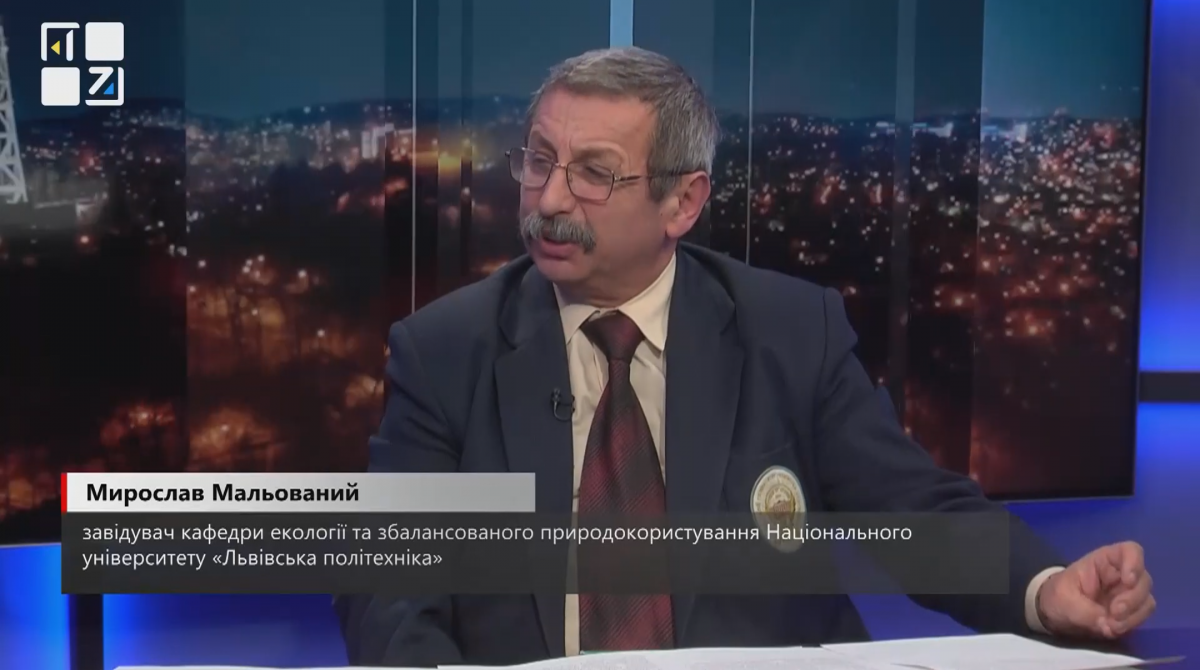Recently, the coordinator of the AGRI-BIOCIRCULAR-HUB project, Head of the Department of Ecology and Sustainable Environmental Management of the Viacheslav Chornovil Institute of Sustainable Development at Lviv Polytechnic National University, Doctor of Technical Sciences, Professor Myroslav Malovanyy, and the Head of the University’s Project Office, PhD, Associate Professor Nazariy Andrushchak, appeared as guests on the TRK "Pershyi Zakhidnyi" television channel. Their visit was dedicated to discussing the implementation of the international scientific project AGRI-BIOCIRCULAR-HUB, coordinated by Lviv Polytechnic.
During the live broadcast, the guests discussed key aspects of the development of the biocircular economy, international cooperation within the Horizon Europe programme, and the challenges and prospects for Ukrainian science in the context of post-war recovery.
Professor Myroslav Malovanyy explained the concept of the biocircular economy as an innovative approach to bioresource management, combining environmental sustainability, efficient use of agricultural waste, and community development. In the Ukrainian context, marked by infrastructure destruction and the need for economic transformation, the transition to a bioeconomy can become a driver of sustainable recovery in the agricultural sector and nature-based management.
Associate Professor Nazariy Andrushchak emphasized the importance of project-based activities for the university, shared his experience in preparing and implementing international projects, particularly within Horizon Europe, and spoke about the work of the Project Office, which supports scientists and initiative groups in developing competitive grant proposals.
The AGRI-BIOCIRCULAR-HUB project aims to create a joint platform for knowledge exchange among researchers, businesses, farming communities, and local authorities. Its goal is to promote the development of the biocircular economy as a foundation for sustainable agriculture and green transformation in Ukraine. The project covers areas such as environmentally safe biomass management, innovative solutions for agricultural waste reuse, and support for local initiatives.


